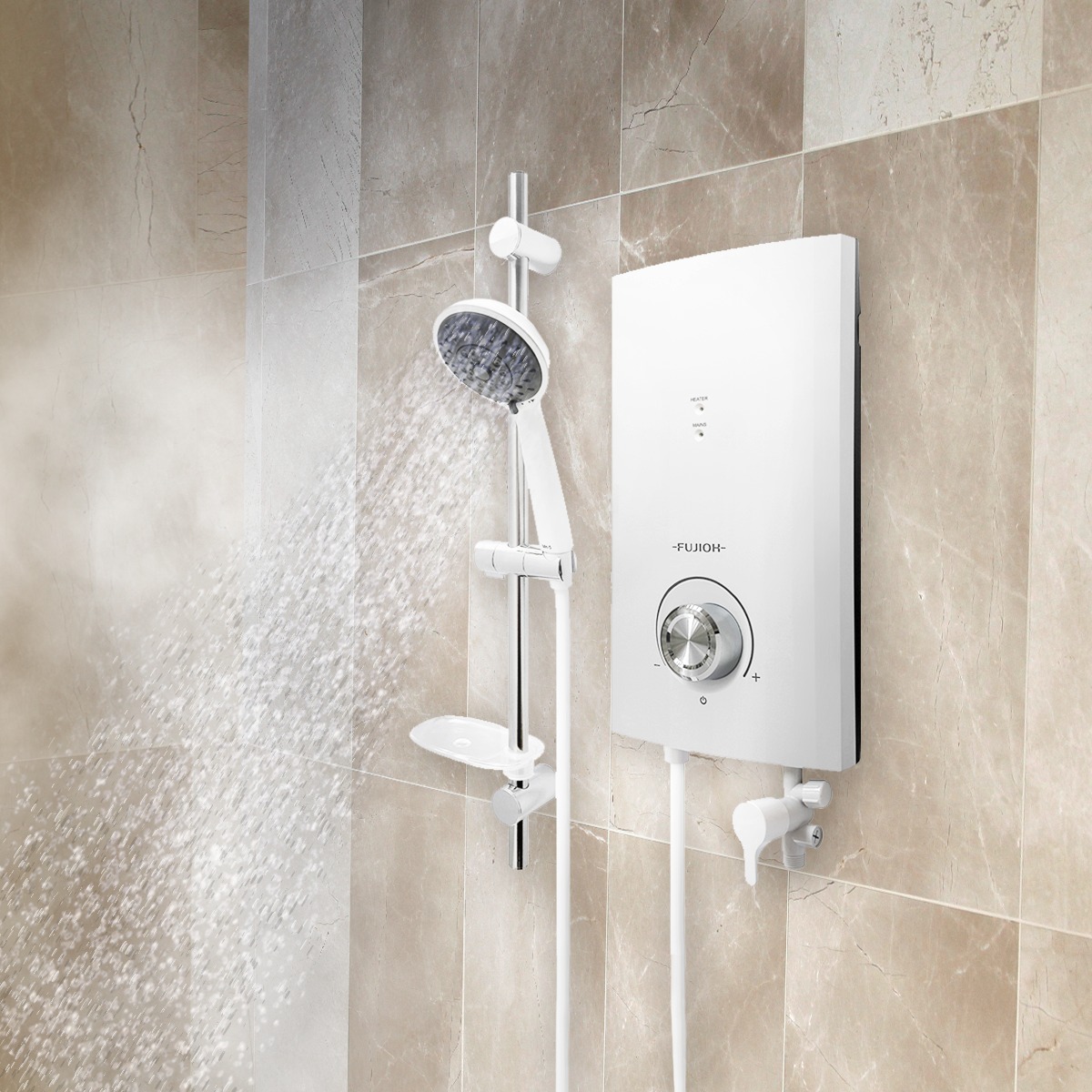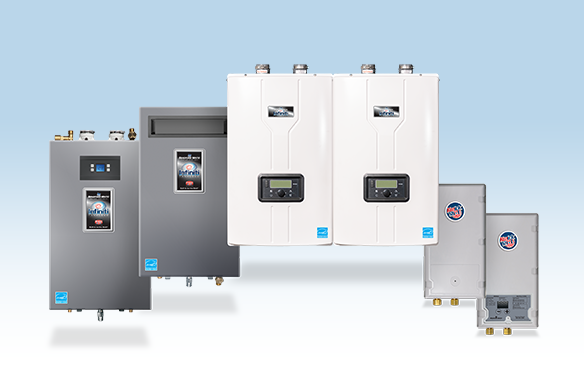We have unearthed this article relating to Unveiling the Hot Trend: The Benefits of Tankless Water directly below on the net and accepted it made perfect sense to share it with you on this page.

In a globe where benefit and performance preponderate, it's not a surprise that home owners are constantly on the lookout for smarter ways to manage their home's power intake and convenience. One innovation that has continuously obtained popularity is the tankless hot water heater. But exactly what makes these systems stand out from the traditional tank-based designs most of us matured with? Allow's dive in and check out the benefits of tankless water heaters, helping you determine if it's time to make the button in your home.
Introduction
Picture this: you enter the shower after a long day, expecting a comforting waterfall of warm water, only to be greeted by icy beads because the last individual used all of it up. Audio familiar? Conventional water heaters store a set quantity of hot water, indicating you go to the grace of that container's supply. Tankless systems, on the other hand, heat water as needed. Say goodbye to running out mid-shower, no more fumbling with schedules just to make certain warm water is offered.
Recognizing Tankless Hot Water Heater
What Are Tankless Water Heaters?
Tankless water heaters, occasionally known as on-demand or instant water heaters, give hot water just as it's required. Rather than saving gallons of pre-heated water, these units kick right into activity the minute you turn on the faucet. Water travels through a warmth exchanger, heating up in real-time, implying you get an undisturbed circulation of hot water without the need for a huge tank sitting lazily by.
Just how Do They Differ from Standard Solutions?
Conventional heating units hold a reservoir of warm water, making use of power to keep that storage tank at a constant temperature. Tankless units remove the standing supply, lowering wasted power and the bulky impact of a large cylinder. Essentially, you're updating from a "accumulation" way of thinking to a "made-to-order" approach.
Typical Types of Tankless Devices
Tankless water heaters generally can be found in 2 selections: gas and electric. Gas versions have a tendency to supply greater flow prices, ideal for bigger households, while electric designs usually serve smaller homes and are typically less complicated to set up. In addition, some systems are created for point-of-use (offering one component) while others can manage the entire home's hot water needs.
Key Advantages of Tankless Water Heaters
1. Limitless Warm Water Supply
Ever before had to set up showers so everybody gets their fair share of hot water? With tankless, that comes to be a distant memory. As long as the heater's circulation capacity isn't surpassed, you can take back-to-back showers without developing into a popsicle.
2. Power Efficiency and Expense Financial Savings
No more heating up a giant container's worth of water and maintaining it cozy throughout the day. Tankless heaters reduce standby power losses, which can reduce utility expenses. While the first expense may be higher, the long-lasting savings frequently justify the financial investment.
3. Space-Saving Layout
If your home is short on storage, getting rid of the bulky container maximizes useful room. Tankless systems are portable and can often be placed on walls, hidden in edges, or set up in tight energy wardrobes without having all to oneself the entire area.
4. Longer Life expectancy
A well-kept tankless water heater can outlast its tank-based relative. Traditional tanks could last 10-15 years, while tankless designs can keep chugging along for two decades or more, making them a strong financial investment gradually.
5. Improved Water Quality
Saving water in a container can often result in debris accumulation or a somewhat "off" taste. With tankless systems, fresh water is heated instantly, minimizing the chances of sediment accumulation and potentially supplying cleaner-tasting water.
Factors to consider Prior To Switching
Though the benefits are engaging, it's wise to consider a few variables prior to fully devoting.
Preliminary Investment Prices
Tankless heaters generally include a greater in advance price. Between the device itself and prospective installation adjustments, the preliminary expense might give you sticker shock. Yet bear in mind to see it as a long-term investment.
Installment Needs
Relying on your home's framework, you might require additional electric capability or gas line upgrades. Guarantee you recognize the setup demands and consult with an expert to avoid surprises.
Assessing Your Home's Water Use Patterns
If your home simultaneously uses several fixtures with high hot water need, make sure the unit's flow rate fulfills your needs. Understanding your use patterns helps you pick the appropriate size and sort of tankless heater.
Maintenance and Care Tips
Tankless systems are reasonably reduced maintenance, but they aren't set-it-and-forget-it appliances.
Regular Cleansing and Descaling
Difficult water minerals can accumulate in the heat exchanger, influencing effectiveness. Regular descaling (often recommended annually) maintains the system performing at peak performance.
Yearly Specialist Assessments
A yearly checkup from a professional guarantees small problems are caught early. They'll assess the system's performance, try to find leakages, and help maintain ideal effectiveness.
Making Sure Proper Ventilation
For gas versions, correct ventilation is vital to safely eliminate exhaust gases. Make sure venting systems are clean and properly mounted to stop any possible safety dangers.
Comparing Different Brands and Versions
Not all tankless hot water heater are created equal.
Researching Trustworthy Suppliers
Search for trustworthy brands with a history of producing high quality units. A trusted supplier frequently offers far better client assistance and longer guarantees.
Reading Testimonials and Customer Comments
Individual reviews and comments from neighbors or buddies who have actually gone tankless can offer useful understandings. Often, real-life experiences can be extra informing than advertising and marketing brochures.
Installment: Do It Yourself or Professional?
While some home owners enjoy tackling projects themselves, tankless installation might not be the best time to burst out the toolbox.
Benefits and drawbacks of Do It Yourself Installment
A DIY set up might save money, however it comes with risks. Incorrect installment can bring about inadequacy or safety and security worries. If you come in handy and have experience, it may be feasible-- however proceed with caution.
When to Call a Specialist Plumbing Technician
For many, calling a professional guarantees whatever's done correctly. A specialist plumbing technician understands neighborhood codes, sizing demands, and venting specifications, minimizing the risk of mishaps.
Making best use of Efficiency
You've bought a tankless system-- now maximize its efficiency.
Ideal Temperature Settings
Lots of people establish their units in between 120-140 F. Adjusting the temperature can improve convenience and savings. Experiment to discover a wonderful spot that does not squander power.
Pairing with Low-Flow Fixtures
Want to extend your device's abilities? Think about setting up low-flow showerheads and taps. They minimize water use, permitting your tankless system to deliver a constant stream of warm water without straining.
Ecological Effect
Tankless water heaters straighten with greener living goals.
Minimized Carbon Impact
By utilizing much less energy and just heating water as required, tankless systems can decrease your home's carbon footprint, decreasing your ecological effect.
Conserving Natural Resources
Less energy usage and less thrown away hot water translate into less natural deposits being made use of, an environmental win-win.
That Profits Most from Tankless Heating units?
The beauty of tankless heating systems is that they can match a selection of houses.
Huge Family Members vs. Solitary Occupants
Big families could love the limitless warm water supply, while solitary passengers value the energy financial savings from not warming an entire storage tank for simply someone's early morning shower.
House Owners with Minimal Space
If your home is short on square video footage, losing the large tank liberates space for various other essentials-- or possibly just more breathing space.
Eco-Conscious Customers
Going tankless aligns with environmentally friendly worths, ensuring you're not wasting energy or sources.
Future Fads in Tankless Hot Water Heater
The world of home appliances is ever-evolving, and tankless water heaters are no exception.
Smart Home Integration
Visualize readjusting your hot water heater's temperature via an application or getting maintenance signals on your phone. As clever home technology developments, we'll see even more connection and ease.
Advancements in Technology
R&D is continuously boosting heat exchangers, making units more reliable and sturdy. Future models may be even quieter, much more compact, and better matched for varying climates.
Final thought
Selecting a tankless water heater is greater than simply updating your home's warm water system; it's purchasing long-lasting comfort, power efficiency, and a greener way of life. By considering your house's water use, being mindful of installment demands, and dedicating to routine upkeep, you can appreciate a consistent stream of warm water without the baggage of a cumbersome container. As modern technology evolves, you can eagerly anticipate also smarter, more effective tankless services that not only make your life much easier yet also profit the world.
Why You Should Consider a Tankless Water Heater for Your Home
Energy Efficiency and Cost Savings
Tankless water heaters, also known as on-demand water heaters, heat water only when needed. This means they don't waste energy keeping a tank of water hot constantly. This efficiency translates into substantial cost savings on your monthly energy bills.
Endless Hot Water Supply
One of the significant advantages of tankless water heaters is their ability to provide a continuous supply of hot water. Traditional tank water heaters have a limited capacity and can run out of hot water, especially during peak usage times. In contrast, tankless water heaters can provide an endless stream of hot water, making them ideal for larger families or homes with high water usage.
Space-Saving Design
Tankless water heaters are compact and take up significantly less space compared to traditional tank heaters. They can be installed on walls, under cabinets, or even outside, freeing up valuable space in your home. This makes tankless water heaters a great option for smaller homes or properties with limited space for a traditional water heater.
Longer Lifespan and Lower Maintenance
Tankless water heaters typically have a longer lifespan compared to traditional tank heaters. They can last up to 20 years or more with proper maintenance. Additionally, tankless systems are designed with replaceable parts, which can extend their lifespan further and reduce long-term maintenance costs.
Environmentally Friendly
Reducing energy consumption not only saves you money but also benefits the environment. Tankless water heaters contribute to a smaller carbon footprint by using less energy to heat water. Their energy efficiency and ability to minimize standby heat loss make them an eco-friendly choice for environmentally conscious homeowners.
Customized Temperature Control
Tankless water heaters offer precise temperature control, allowing you to set the desired temperature to meet your specific needs. This level of customization ensures you always have water at the perfect temperature for your comfort and usage requirements.
https://beantownservices.com/blog/consider-tankless-water-heater-for-your-home

We hope you enjoyed our excerpt on . Thank you so much for spending some time to read through our blog post. Those who enjoyed reading our blog posting if you please make sure you remember to pass it around. I am grateful for being here. Return soon.
Call Today